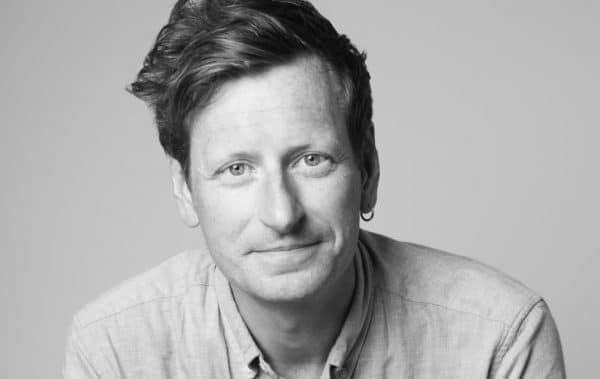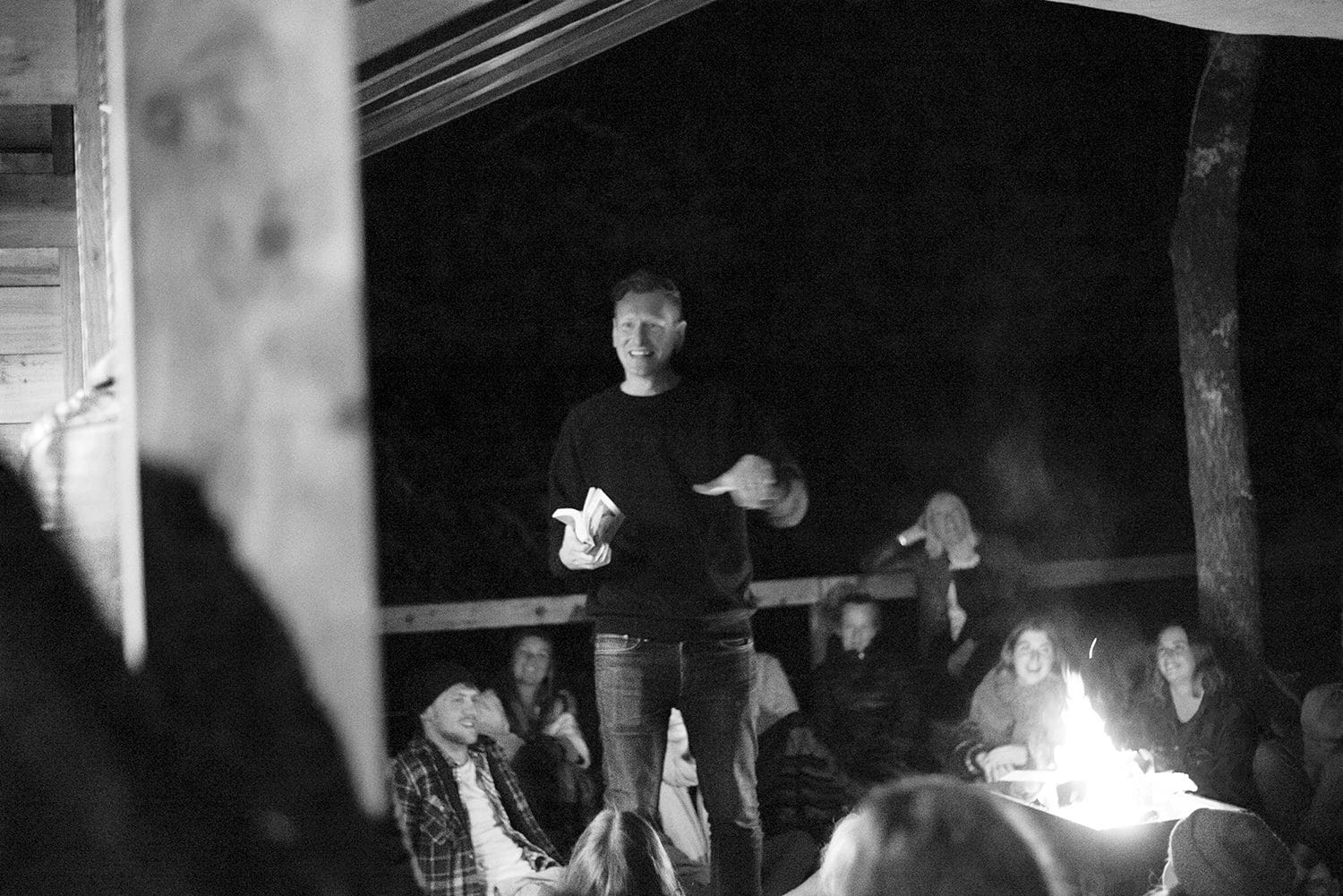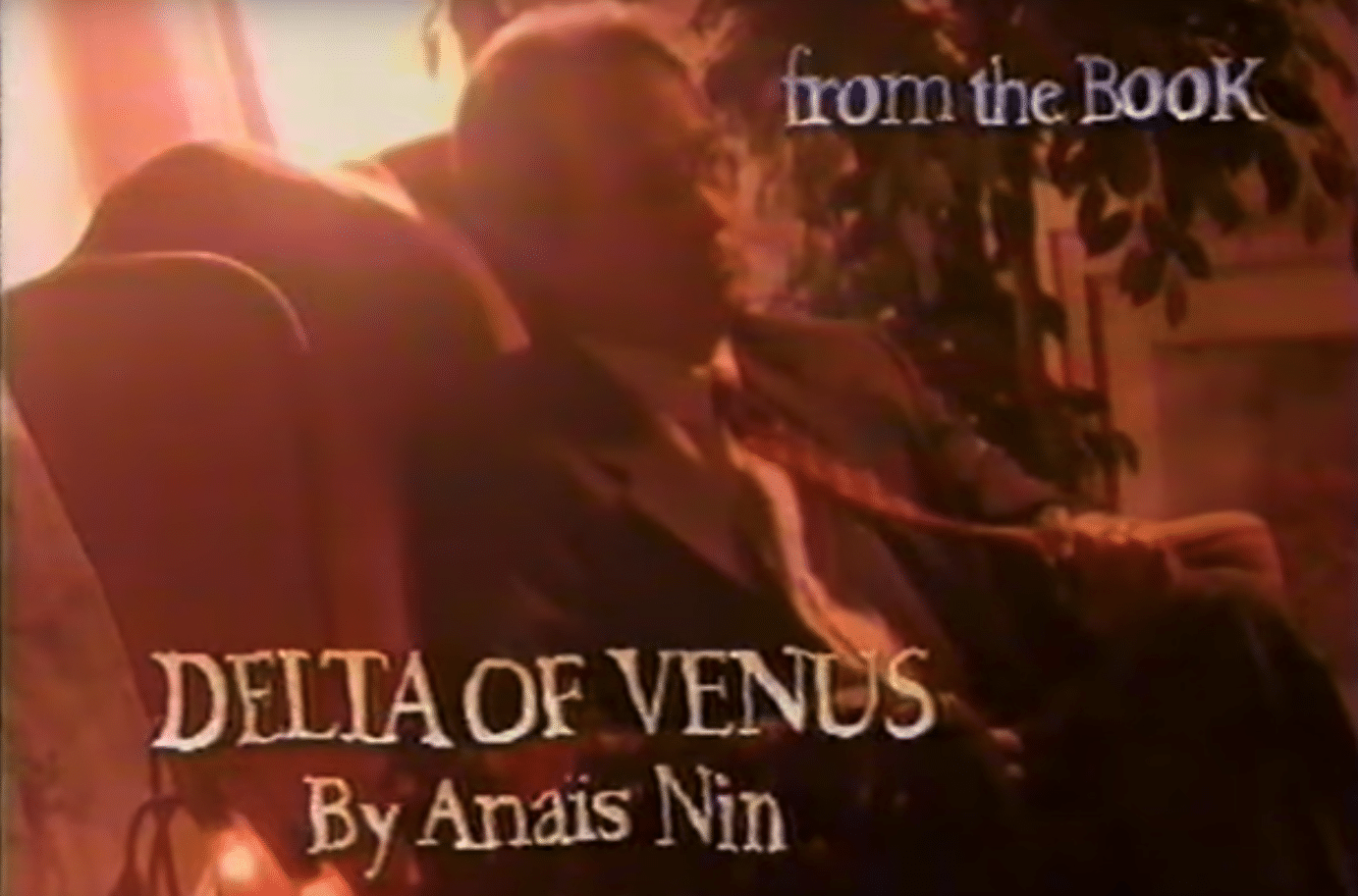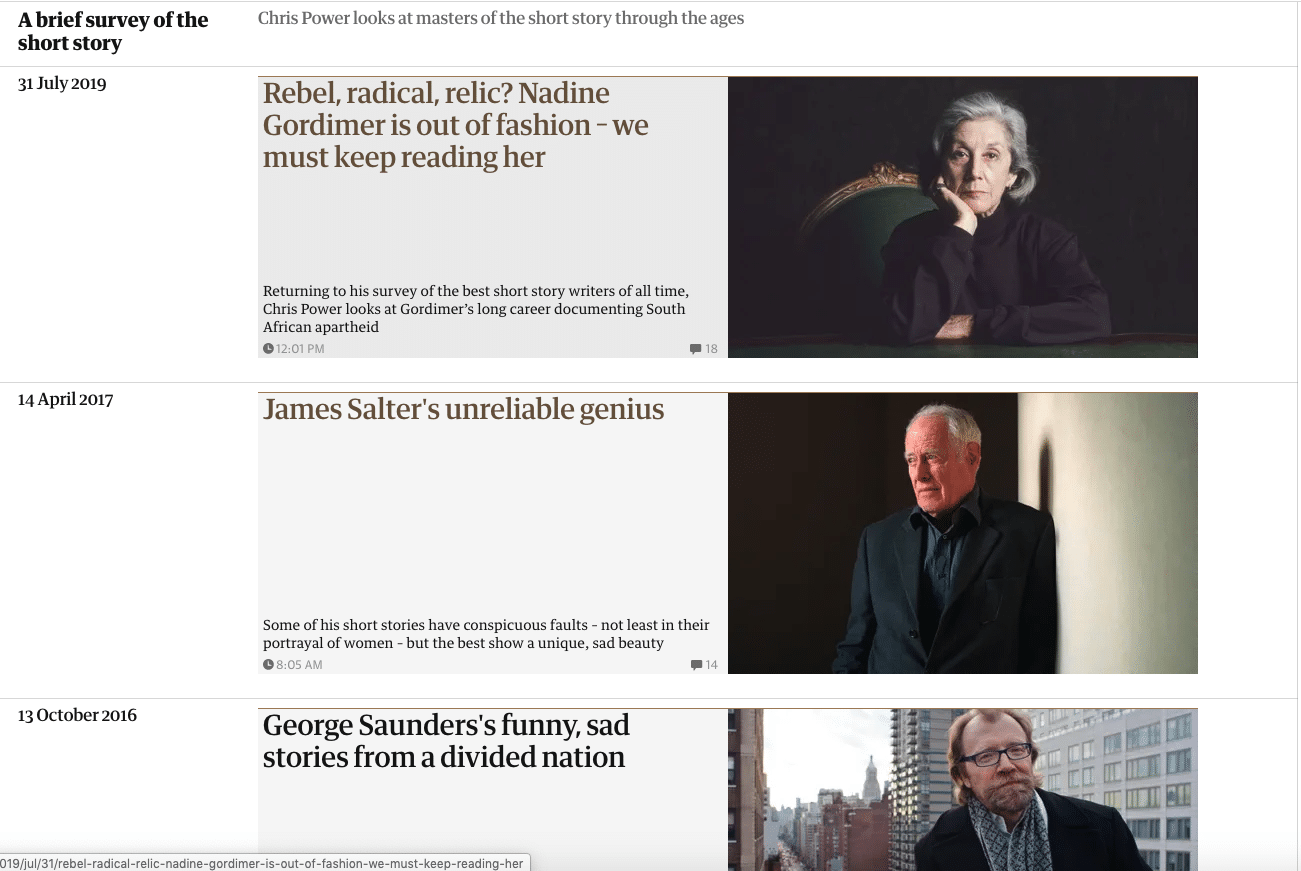
Lanzarote is not known for literary epiphanies. Star Warsian moonscapes, relentless onshores and Full English fry-ups while baking to a Canaries crisp, sure. Being inspired to immerse yourself in the world of short stories? Not so much. But for Chris Power, that’s exactly what happened. He was 17. He was on holiday. The house had cable, a rarity in the 1990s. So of course, MTV went on. “This thing came on called Books: Feed Your Head – short films between music with actors doing monologues from literature. I was hooked,” he explains down the line from London. We’re talking about how his writing career took shape, leading to the publication of his first short story collection Mothers (Faber), which turned heads and won fans on its publication in March 2018. “There was this one that just blew my mind,” he continues, recollecting his holiday MTV viewing. “It was a bit from Chablis, by Donald Barthelme, this American I hadn’t heard of. When I got home I picked up a book of his, 40 Stories, and it blew me away.”
Chris goes on to explain that Barthelme was the in-house post-modernist at the New Yorker in the ‘60s and ‘70s, “when the New Yorker wasn’t much of a post-modernist publishing organisation.” How Barthelme paved the way for writers like John Updike – very much not a post-modernist up to that point – to dabble in post-modernism. He’s still telling me how he got into writing, but the skewing tangents of our conversation serve to illustrate something else too. This is a man that loves short stories. And seriously knows his stuff. But more on that later.
Back to London, post-Lanzarote and our teenage protagonist hungrily seeking out more short fiction to feed his fast-growing appetite. “That same summer I picked up this collection called Jesus’ Son by Denis Johnson, which remains the single best collection of short stories I’ve ever read,” Chris says. “Suddenly I was seeing the possibilities of what short stories could do. I think it was a lucky confluence of watching TV and finding those two books that led me to it.”
“I learnt a great deal from reading. I still do. But you have to put in the work to be a writer. You have to commit and there was a point in my life where I was actually ready and able to do that."
Read: write
‘It’ being writing fiction for a living. Or at least reading, first. Like most people interested in words, Chris spent his childhood making up stories. He clearly remembers the moment – at eight years old – that he read Lord of the Rings and knew writing was what he wanted to do. But for him, there wasn’t an A-B route to that profession ready and waiting. “I don’t think anywhere was offering creative writing when I was looking at universities, so I didn’t even consider studying it,” he explains. “It wasn’t really something I was viewing from a career perspective. I thought it was very much just something you do in your spare time.” So he did. And while writing ‘fitfully’ in his spare time, it was his reading that started taking him places.
In 1999, Chris found himself doing work experience at The Times and, after a conversation with the assistant to the Literary Editor, he got the chance to write a book review. “He just gave me a book and said, ‘well see how you get on with that’,” Chris explains. “I guess it was no loss to him but it was a big deal to me. And they ran it and then I pestered them for a bit for a few months, until after a while I stopped having to pester and became part of their roster.”
From The Times to the Guardian and 2007, when Chris pitched an idea for a series that he still writes today. “The original idea with A Brief Survey of the Short Story was to take a short story writer a week and write an introduction to their work. I thought I’d do 15 or 20 of them and that would be that,” he says. “I was lucky that the Guardian was really investing in its online content at the time so were hungry for stuff. I did it in a bit of a haphazard way and explained at the outset that it wasn’t in order of greatness – although I did start with Chekhov who would probably be at the apex of my pantheon. As I started running out of people I knew off the bat, I began seeing it as an opportunity to read more authors – ones I knew a little or ones I’d always meant to read but hadn’t. So for example I’d say, ‘alright, I’m going to do Tolstoy and I’m going to read all Tolstoy’s short fiction.’” Of course, this inevitably meant that the gaps between survey instalments got bigger and that Chris’ reading list grew. Which in turn shaped his ‘spare time’ writing. “It was in 2010, after three years doing the Survey that I started producing fiction of my own that was getting anywhere close to what I was envisaging in my head when I sat down to write.”
Although Chris is quick to point out that it wasn’t just three years of intensive short story research that improved his writing practice. Through his work as a reviewer, journalist and copywriter he learnt how to really edit. And meeting his wife, beginning to lead a less ‘chaotic lifestyle,’ putting in the hours, getting up early to write before the day job even if it was the last thing he felt like doing, all made a difference. “I learnt a great deal from reading,” he says. “I still do. But you have to put in the work to be a writer. You have to commit and there was a point in my life where I was actually ready and able to do that – that’s when I started producing something that I thought had some value and then in turn that provided its own motivation I suppose.”
Talent talks

To follow this story to the letter would be to believe that Chris’ career was shaped through happenstance, good fortune and simply putting in the hours. But as with any narrative worth its salt what’s needed here is a lot of reading between the lines. Whether it’s securing work experience at The Times in the first place, writing something at 20 years old that the Literary Editor at a national newspaper was happy to publish, or being taken seriously when you pitch an idea to write about books you like to read, not to mention an ability to commit yourself to read all Tolstoy’s short stories and come up with something valuable to say: talent has a big part to play here. Chris’ writing is ‘extraordinary’ with an ‘intelligent and confidently idiosyncratic approach to the form’ (The Times). Praised for its lean,‘unshowy craftsmanship’ (The Guardian), turn to any of the stories in Mothers and you’ll be quickly drawn into prose that offers both sharply observed images and thought provoking insight.
There’s a connection between the stories in Mothers that pulls you through as a reader; sometimes subtle and thematic, other times explicit, revisiting key characters at different points in their lives to see where the world has taken them. “A lot of the stories have the same interests or obsessions but I wasn’t aware of that until a later stage,” Chris explains. He has a suspicion for connected collections, so surprised himself in creating one. “I was quite resistant to the idea, partly because when I started reviewing there was a rash of connected story collections with pretty spurious links between them. But then I realised (or someone suggested and I am doing them a massive disservice by not crediting them) that two of the stories could be linked, the first story in the book, Summer 1976, about a young Swedish girl and Innsbruck, which was originally about an English woman. Looking at the stories side by side it became apparent that the English woman could be reworked as an older version of the young Swedish girl, Eva.” Eva becomes a character we return to multiple times, at different points in her life and in different places – her struggles and contemplations bringing the reader back to Chris’ concerns with transition, change, freedom and the search for meaning.
"Some people will think of Grief is the Thing With Feathers as a poem or a short story, but if Max Porter wants to call it a novel, that’s his right. The moment the conversation about form overtakes the conversation about the work, we’ve lost.”
Substance over form
I ask him why, if he had a character he wanted to revisit over multiple stories, he didn’t build her story out further and write a novel. I think I can hear him wincing on the other end of the phone. “You often hear that question of short story writers, ‘I enjoyed reading these stories so much, I wanted more. I wanted it to be a novel’, and it drives me a bit nuts because it’s like ignoring the form that has just presented itself,” he says. “This thing has satisfied you on every level but because we’re so unpractised talking about it we have to talk about novels or how ‘this made me think it was like something much bigger.’” Chris is a believer in the work speaking for itself, pure and simple. Short story, a novella, a novel; different forms have different purposes but the generic nature of that form shouldn’t be the focus. “It should really be up to the writer to choose how they define their work, shouldn’t it? I mean, some people will think of Grief is the Thing With Feathers as a poem or a short story, but if Max Porter wants to call it a novel, that’s his right as far as I’m concerned. The moment the conversation about form overtakes the conversation about the work, we’ve lost.”
So without focusing too much on form, what’s next for Chris? He laughs. “Actually I’m writing a novel,” he says, “It’s set in Berlin and it’s about a dead oligarch, deception, and the ethics of transforming real life events into fiction. I’ve been called a champion of the short story, and I’m happy to be considered one, but it’s storytelling that I’m primarily interested in, and I want to tell stories of all shapes. I think it’s a question of finding the right form for each story, and for this one, that form is the novel.” Is his process different with this form? Are there similarities? The answer is both, he says. “Writing is writing. I don’t know if this is true for everyone, but whenever I sit down to write something it’s like I’ve completely forgotten pretty much everything about this thing that I’m supposedly able to do. My first drafts are unreadable. Artists don’t forget how to draft, potters don’t forget how to throw bowls. Imagine if a potter came to her wheel every morning and realised she’d completely forgotten how to throw a bowl. It can be really dispiriting. And I guess with a novel the challenge can be greater and more oppressive, because there’s just so much more of a terrible first draft to work through. But somewhere along the line, many, many hours into the project, you realise you can write after all, and as things gets tighter and sharper you’re able to see what’s in there that’s of worth. But some days still feel like wading through treacle.”
Something tells us this particular sea of treacle is going to be well worth the trudge. We can’t wait to read what comes out of it.
Mothers (Faber, hardback, 2018, paperback 2019) is available now. Check out your local bookshop or buy online.
Chris joined us at our Firelight Sleepover at Kudhva in September. Thanks to Jon Denham for the pictures.

